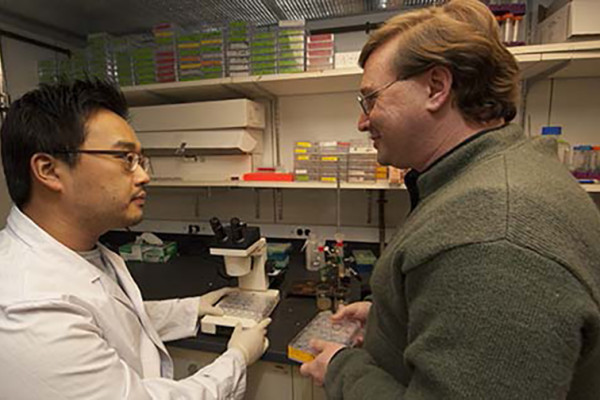Damiano named chief of cardiothoracic surgery
Ralph J. Damiano Jr., MD, an internationally known cardiac surgeon, has been named chief of the Division of Cardiothoracic Surgery at Washington University School of Medicine.
Balota, Teitelbaum to receive 2014 faculty achievement awards
David Balota, PhD, a leader in the study of cognitive breakdowns that occur in Alzheimer’s, and Steven L. Teitelbaum, MD, a world-renowned bone biologist, will receive Washington University in St. Louis’ 2014 faculty achievement awards, Chancellor Mark S. Wrighton announced.
Arts & Sciences presents Distinguished Alumni Awards, Dean’s Medal
Arts & Sciences recognized a beloved faculty member, a Pulitzer Prize winner, a driving force in continuing education, a devoted advocate, and entrepreneurs in energy and public relations during its 16th Annual Arts & Sciences Distinguished Alumni Awards ceremony, held April 24 at the Hilton Frontenac Hotel.
STL To Do: Mainstreet Musicals – St. Louis Festival
Senior drama major Sarah Palay recommends Mainstreet Musicals – St. Louis Festival, a showcase for new works created by St. Louis writers, producers and actors. It takes place this weekend in Forest Park.
University makes major solar commitment
Washington University in St. Louis is moving forward with a bold and impactful plan to increase solar output on all campuses by 1,150 percent over current levels by this fall. The project demonstrates the university’s commitment to sustainable operations and to reducing its environmental impact in the St. Louis region and beyond.
Daughter donates kidney to her ailing father
When Andrea D’Angelo learned that her father, John D’Angelo, needed a new kidney, she decided she would donate one of hers. The surgeries were performed by Washington University transplant surgeons at Barnes-Jewish Hospital and were successful. Now, the family shares its story to educate and encourage others.
Sustainable design
Winning teams in the I-CARES Student Competition displayed their sustainability projects on the Danforth Campus of Washington University in St. Louis last week. The annual competition asks students to propose a physical installation in the area of climate change, renewable energy or sustainable design.
Research Without Walls
The Brown School’s third annual Research Without Walls student symposium was held April 22 in the hallways of Brown and Goldfarb halls on the Danforth Campus, with students such as Jaclyne Smith presenting projects and research worked on throughout the academic year.
A protein key to the next green revolution sits for its portrait
Scientists are beginning to talk about re-engineering crop plants so that, like legumes, they will have on-site nitrogen-fixing systems, either in root nodules or in the plant cells themselves. The structure of a protein called NolR that acts as a master off-switch for the nodulation process, published in the April 29 issue of PNAS, brings them one step closer to this goal.
Temple Grandin, Henry Bloch and Tony La Russa among six to receive honorary degrees
Washington University in St. Louis will award six honorary degrees during the university’s 153rd Commencement May 16. During the ceremony, which will begin at 8:30 a.m. in Brookings Quadrangle on the Danforth Campus, WUSTL will bestow academic degrees on approximately 2,800 members of the Class of 2014.
View More Stories


